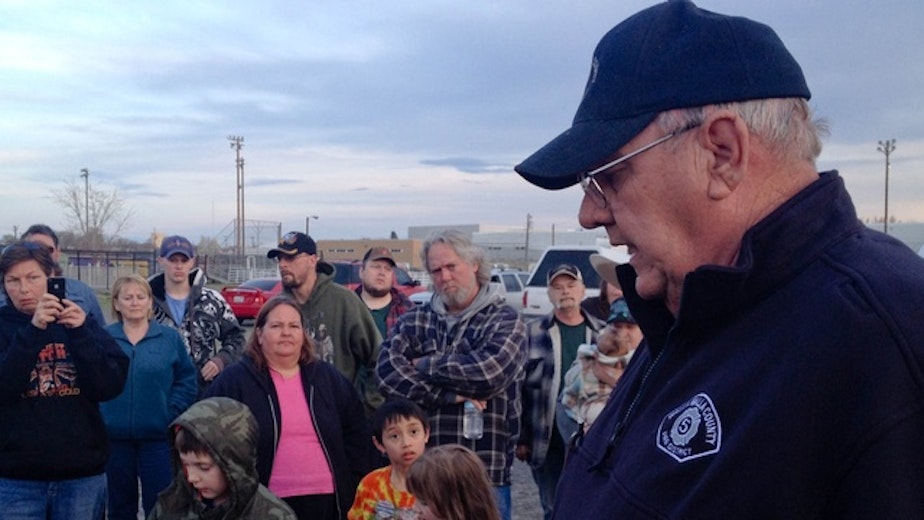What Does The Plymouth Explosion Mean For LNG Proposals?

People opposed to exporting liquefied natural gas in Oregon say Monday’s explosion along the Columbia River points out safety problems at these types of facilities. But project supporters say the explosion should not affect decisions about their facilities.
The explosion at a liquefied natural gas — or LNG — storage tank in Plymouth, Wash., sent five people to the hospital. Hundreds more were forced to evacuate a two-mile zone around the facility.
The explosion quickly drew the attention of opponents to LNG export projects on the Oregon Coast. One project, Jordan Cove, is proposed for Coos Bay on the South Coast. The other, Oregon LNG, would be built in Warrenton near the mouth of the Columbia River.
Dan Serres, conservation director with Columbia Riverkeeper, said he’s concerned that the communities where these export projects would be built are far more densely populated than the small town of Plymouth in south-Central Washington.
“Imagining how you would evacuate the schools, the nursing homes, all the facilities that are within that two-mile radius, it’s just almost unimaginable,” Serres said.
Sponsored
Ted Gleichman, who chairs LNG committee for the Oregon chapter of the Sierra Club, said the explosion in Plymouth should concern regulators and people who live near proposed export terminals.
“We can’t ignore the fact that they are inherently extremely dangerous — and huge,” Gleichman said.
The Jordan Cove LNG project in Coos Bay could store 3.4 billion cubic feet of gas in each of its two tanks, almost triple the amount of natural gas as the Plymouth facility, which can store 1.2 billion cubic feet of gas in each of its two tanks. A Williams Northwest Pipeline spokeswoman said the tank that exploded in Plymouth was about 1/3 full.
Michael Hinrichs, spokesman for Jordan Cove, said the proposed facility would have its own fire department and incident control center. Storage tanks would be 1.3 miles from the nearest home.
“This is an industry that has been around for a very long time, and it definitely had some lessons to learn from. And our facility is going to take those lessons into consideration, build according to the applicable standards, and make sure that we operate above and beyond for safety.”
Sponsored
Hinrichs said the storage tanks would have a dual containment system. The storage tank that exploded in Plymouth was a double-shelled tank with five feet of inner and outer walls. The explosion punctured the tank. Investigators are still determining the cause of the explosion
In Plymouth nearly all of the residents have returned to their homes.
The day of the explosion evacuee Dawn Wallem sat in the back of a blue pickup truck at the Umatilla County Fairgrounds, across the Columbia River in Hermiston, Ore. Her house is about a quarter of a mile from the LNG storage tanks.
Wallem had already rented a hotel room for the evening and wasn’t concerned about returning home quickly.
“I’m not going to push to go back there. I need to know it’s safe. We need to be sure it’s safe first,” she said.
Sponsored
Wallem said she’s learned over the years to be prepared for just about anything.
Correction: April 2, 2014. An earlier version of this article misstated Ted Gleichman’s title. He is the chairman of the LNG committee for the Oregon chapter of the Sierra Club.
Copyright 2014 ERTHFX. To see more, visit http://earthfix.kuow.org.
